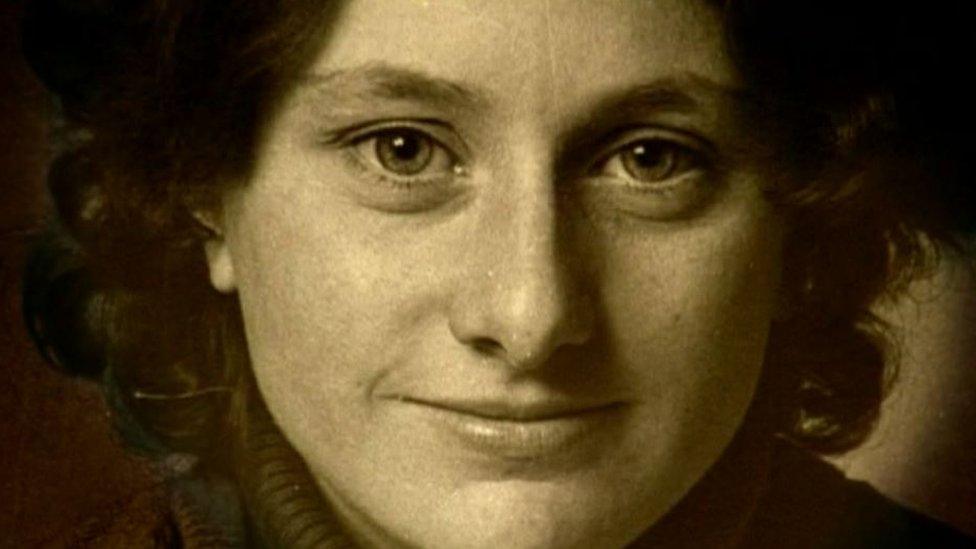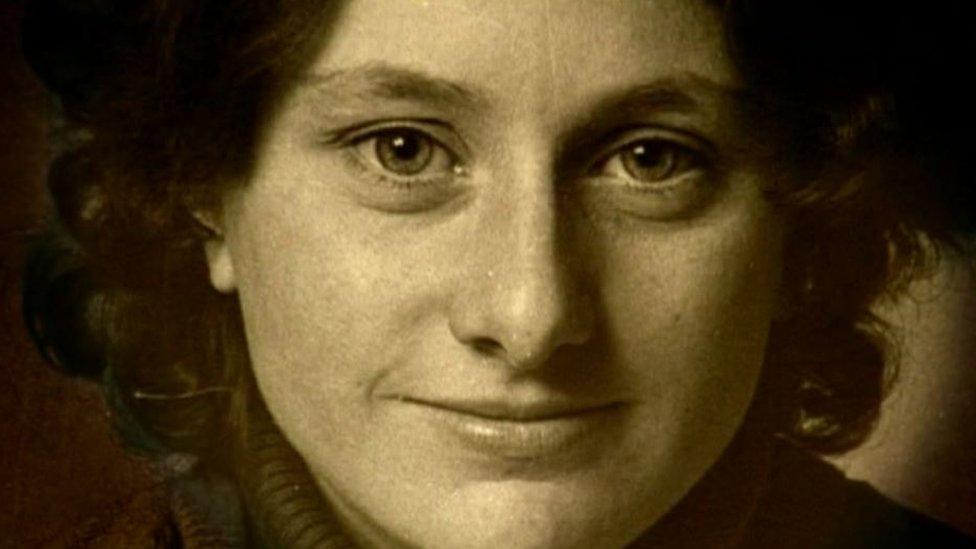Jessie Earl murder: Fresh inquest bid over 1980s death
- Published

Miss Earl's remains were found in dense undergrowth nine years after she disappeared
The parents of an art student who went missing 40 years ago have applied to the Attorney General for permission to seek a fresh inquest.
Jessie Earl was 22 when she disappeared on 15 May 1980 in Eastbourne, Sussex. After her remains were found in 1989, an inquest recorded an open verdict.
Her father, John Earl from south London, said it was obvious his daughter had met with a violent end.
The Attorney General's Office confirmed the application had been received.
Mr Earl, 92, said his daughter's incomplete skeleton was found in dense scrubland above Beachy Head and the only personal item retrieved was a bra found tightly knotted as if used as a restraint.
Because no other clothes were found, Mr Earl said, he believed she had been "stripped naked and her body very effectively concealed".
"It was a wrong verdict," he said. "We have always felt it wasn't fair to Jess from day one. We have always known it was murder."
His wife, Valerie, 88, said the couple was led to believe that a coroner's verdict could not be challenged, adding: "We were told that definitely and told there was nothing we could do about it."
Despite being in court to hear the conclusions in the 1989 case, the couple only saw inquest papers for the first time last year.
They described the documents as "sparse" and "perfunctory".
They said the first inquest returned an open verdict without commenting on any evidence that might point to an unlawful killing.
Fresh inquest 'declined'
Police said extensive inquiries found no trace of Ms Earl after she disappeared.
After her body was found in March 1989, a post-mortem found the cause of death to be unascertainable. The first inquest delivered an open verdict four months later.
The force had treated Ms Earl's death as suspicious, but in 2000, after forensic, scene, witness and pathology inquiries, police recorded her death as murder.
At that point, officers suggested a fresh inquest, but the coroner declined, a police spokesman said.
Police said if the family's request for a fresh inquest was granted, the force "would naturally consider any request to provide information we hold to assist in that process".
- Published25 September 2018
